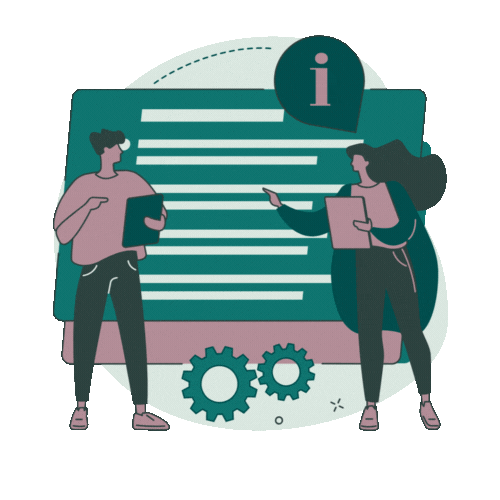Tips for Self-Employed Homebuyers Guide: Everything Canadians Need to Know
Tips for Self-Employed Homebuyers in Canada can be a game-changer when you’re juggling your own business finances and dreaming of owning a home. Being your own boss comes with unique opportunities—like flexible schedules or growing profits—but it can also make securing a mortgage trickier. In this guide, we’ll walk you through the basics of applying for a mortgage as a self-employed individual, share practical strategies to boost your approval odds, and point you toward helpful resources so you can become a homeowner with confidence.
(Need to see what you can afford, even with variable income? Check out our Mortgage Affordability Calculator, or browse our over 50 blog posts for more insights!)

On this Page
Introduction: Why Being Self-Employed Changes the Mortgage Game
When you’re self-employed—whether you’re a freelancer, contractor, or small business owner—lenders often see your income as less predictable than a steady salaried job. This means you’ll need to prove your earnings more thoroughly, keep your finances well-organized, and possibly gather extra documents.
Value of This Guide: By learning tips for self-employed homebuyers in Canada, you’ll:
- Better understand the mortgage rates in Canada that you might qualify for.
- Find out what paperwork or tax documents can strengthen your application.
- Save time and hassle by approaching lenders with the right strategy.
Section 1 – Understanding the Unique Challenges
1. Fluctuating Income
A monthly paycheque is not always guaranteed if you’re self-employed. You may have peak months (lots of work, big cheques) and slow months (less income). Lenders worry about whether you can make your mortgage payment consistently.
2. Limited Income History
Some lenders want to see at least two years of stable self-employment income. If your business is new or you can’t show consistent profits, you might face more hurdles.
3. More Documentation
Unlike a typical employee who can show a few pay stubs and a T4 slip, self-employed buyers often need:
- Tax returns (usually two years).
- Business financials (like profit/loss statements).
- Invoices or contracts proving ongoing work.
- Bank statements showing regular deposits.
Feeling overwhelmed by your finances? Our Debt Consolidation Calculator could help you manage outstanding debts before applying for a mortgage, improving your chances of approval.
Section 2 – Preparing Your Finances as a Self-Employed Buyer
1. Keep Detailed Records
- Organize your tax returns, business statements, and receipts.
- Use accounting software to track income and expenses.
- Keep personal and business finances separate, with distinct bank accounts.
2. Build a Solid Credit Profile
- Pay bills on time and reduce credit card balances.
- Avoid opening or closing multiple credit lines before applying; stability is key.
- Check your credit report regularly for errors.
3. Save a Bigger Down Payment
While you can buy a home with as little as 5% down, self-employed folks often benefit from 10-20% or more. A larger down payment can:
- Make your mortgage application look stronger.
- Possibly land you more affordable mortgage rates.
- Lower your monthly payments.
4. Plan for Fluctuations
- Stash emergency funds to cover mortgage payments during slow business cycles.
- Create a budget for all home-related costs (mortgage, property taxes, maintenance).
Want to see how a bigger down payment or different interest rate changes your monthly outflow? Try our Comprehensive Mortgage Payment Calculator.
Section 3 – Demonstrating Income Stability
1. Income Tax Returns
Most lenders want to see your past two years of Notices of Assessment and T1 General tax returns. This proves you’ve consistently earned enough to handle mortgage payments.
2. Financial Statements
If you’re a sole proprietor, you might show:
- Income/expense reports.
- Balance sheets.
If you have an incorporated business, you might need corporate financials. Show them you’re profitable or have steady cash flow.
3. Signed Contracts or Client Invoices
If your business is built on contracts (say a web designer with recurring clients), having them can reassure lenders of future income.
Confused by business finance jargon or the best way to present your statements? A mortgage broker or accountant can help refine your documents. Our Compare and Save Calculator might also clarify if a better rate is worth extra effort.
Section 4 – Mortgage Options for Self-Employed Homebuyers
1. Stated Income Mortgages
Some lenders offer “stated income” products where you declare your income level rather than fully document it, if you can’t produce standard proof. You usually need a bigger down payment or show excellent credit.
2. Traditional Mortgages (Fully Documented)
If you have the typical 2-year income evidence and a strong business track record, you can often qualify for a regular mortgage with the same rates as a salaried buyer.
3. Alternative Lenders
If banks are wary, private lenders or B-lenders might step in, but watch for higher rates or fees.
Considering a refinance or second mortgage to fund your business? Our Reverse Mortgage Calculator might show if tapping home equity is an option. For other scenarios, talk to a mortgage broker about specialized self-employed products.
Section 5 – Seeking Professional Mortgage Advice
1. Mortgage Broker
A broker can connect you to lenders who specialize in self-employed mortgages, potentially scoring better deals than you’d find alone. They’ll:
- Explain mortgage rates in Canada for business owners.
- Check your documents thoroughly.
- Suggest if you’d benefit from a variable or fixed rate.
2. Accountant or Tax Professional
They can help ensure your income looks stable on paper. For example, many self-employed people write off expenses to lower taxes, but this can also reduce reported income, making mortgage approval harder. Balancing tax savings vs. mortgage eligibility is key.
3. Real Estate Agent
A knowledgeable agent helps find homes in your price range—someone who understands self-employed finances can be extra supportive.
If you want a quick sense of your home affordability, try our Mortgage Affordability Calculator. It factors in different incomes, interest rates, and down payments.
Section 6 – Building a Strong Support Network
1. Collaborating with Lenders
Establish relationships early. Some lenders appreciate a thorough approach—like giving them your updated business plan or projected earnings. Communication can lead to flexibility in underwriting.
2. Business Mentors & Associations
Other entrepreneurs may have gone through homebuying. They might recommend lender-friendly CPAs or brokers who grasp the self-employed challenges.
3. Ongoing Communication
Your income might shift year-to-year. Keeping your mortgage broker updated about big changes in revenue or expansions helps them anticipate your future mortgage needs.
Section 7 – Overcoming Common Challenges
1. Lower Reported Income vs. Real Cash Flow
If you heavily deduct business expenses to pay fewer taxes, your net income might look small. Lenders consider net income in your tax returns, so be prepared to show other documents (bank statements, etc.) verifying your actual cash flow.
2. Maintaining Credit Score
When you’re self-employed, you might rely on business credit cards or lines of credit. Ensure you keep personal credit healthy—lenders factor that in for a mortgage, even if your business finances look good.
3. Dealing with Inconsistent Pay
Plan ahead. If you know some months are lean, stash enough to cover mortgage payments or ensure your business can pay you a consistent salary each month.
Need to manage monthly obligations and free up cash flow? Our Debt Consolidation Calculator might help you see if combining debts into one payment is beneficial.
Section 8 – Real-Life Example: Sam the Freelancer
Sam has been freelancing for two years, showing:
- $50,000 net income in year one.
- $65,000 net income in year two.
He organizes his tax returns, invests in an accountant, and saves a 15% down payment. He visits a mortgage broker who places him with a lender offering a rate close to typical employees, because:
- Sam’s credit score is strong.
- His net income is rising, showing stability.
- He has enough cash reserves to handle slow months.
Result: Sam secures a mortgage at a decent interest rate, proving self-employed mortgages can be straightforward if prepped well.
Section 9 – Final Tips for Self-Employed Homebuyers in Canada
- Plan Ahead: Start prepping at least a year before you want to buy—organize finances, fix credit issues, and keep business records up-to-date.
- Boost Savings: A larger down payment can offset lenders’ concerns about income fluctuations.
- Keep Business + Personal Separate: Distinct bank accounts, clear invoice records, and official business registration help you look professional.
- Stay Realistic: Buy a home you can comfortably afford, even in lean months.
- Consult Experts: Mortgage brokers, CPAs, and real estate agents who understand self-employment are invaluable.
If you’re unsure how your income might translate into a mortgage, our Compare and Save Calculator could show whether a variable or fixed rate might better suit your finances.
Tips for Self-Employed Homebuyers in Canada
Below are common questions about Tips for Self-Employed Homebuyers in Canada.
How many years of self-employed income do I need?
Most lenders like to see two full years of tax returns showing consistent or rising profits. If you have less than that, some specialized lenders might still approve but may charge higher rates.
Can I use my business income to qualify?
Yes, but you need to prove it’s consistent and stable. Lenders typically look at your net business income reported on your tax returns.
Is it harder to get a mortgage if I write off a lot of expenses?
Yes, because if you write off expenses, your net income appears lower. Lenders use that net figure to gauge affordability. An accountant can help balance your tax strategy with your mortgage goals.
Will I pay higher interest rates as a self-employed buyer?
Not necessarily. If you show stable income and good credit, you might qualify for the same rates as salaried borrowers. If your documentation is weak, you may need an alternative lender at a higher rate.
How can a mortgage broker help me?
They’ll match you with lenders who understand self-employment. They also help gather documents, structure your application, and possibly negotiate better terms on your behalf.
Do I need a larger down payment?
It’s not a strict rule, but self-employed buyers often find a bigger down payment (e.g., 10-20%) makes lenders more comfortable, improving chances of approval and interest rates.
Where can I find official info on mortgages for self-employed?
You can check the CMHC’s website for general guidelines or speak directly to a mortgage broker familiar with self-employed scenarios.
Tips for Self-Employed Homebuyers in Canada show that while your mortgage path may differ from someone with a 9-to-5 job, success is definitely within reach. The key is to:
- Organize your finances and show stable, verifiable income.
- Boost your down payment to ease lender concerns.
- Partner with a mortgage broker or advisor who understands self-employment.
If you’re ready to begin—or if you want help smoothing out your finances first—contact our team. We’ll guide you through the entire process, from picking the right lender to comparing interest rates. And don’t forget to explore our Debt Consolidation Calculator or Reverse Mortgage Calculator if you’re considering other financial strategies.
With the right plan, you can become a proud Canadian homeowner—on your own terms!















